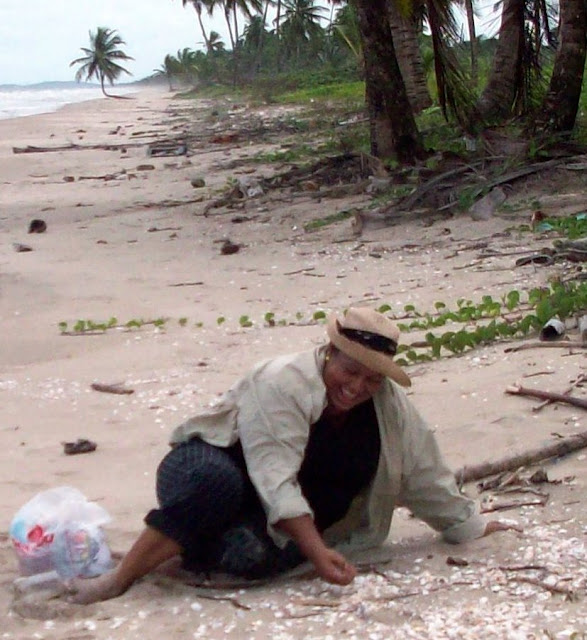The term "blue zone" was formalized in 2004 after a study of an extradinarily long-lived group of people in Italy. The study prompted publication of an academic paper on longevity - and voila! a new business was formed: Blue Zones LLC. The term was then trademarked and a business was built to sell a healthy lifestyle. Oddly enough the business ramped up at about the same time that other groups began touting that being fat can be healthy...go figure.
The business designated five places in the world where people live longer than usual...often into their 100s; and each of these areas shares a set of common characteristics which seem to contribute to the long and healthy lives of the inhabitants. Of these five areas, four are on water...oceans, seas, etc. The fifth is near - but not on - water.
But the set of common characteristics is just that - common.
Before I ever heard the term blue zone, I recall being impressed, as I settled more and more into the daily life of Bluefields, at the number of old people in that small city, both men and women, who are healthy and active as well as old.
These people usually walk where they want to go. They shop and carry stuff - like their own groceries. They visit friends. They go to church. They care for family members young and old. Sometimes they take on the care of a friend. In general they participate in the life of their communities. They are in control of their own lives and business, like my friend below at her lawyer's office. They are rarely, if ever, in air conditioned spaces - fans and open windows suffice.
And they rarely, if ever, eat processed foods....unless they do the processing.
After some recent reading about blue zones in general, not just the trademarked ones, I realized that all of the characteristics of long-lived groups are common to the large group of elderly people Bluefields. And the characteristices are common to a lot of young people in Bluefields as well - which makes me think that many of the young people there may also live to a ripe old age.
In Bluefields most people share these characteristics...they:
- move naturally throughout daily life rather than depend on something like a gym membership for their activity;
- have purpose (sometimes several, either long or short term;
- avoid stress (maybe moving naturally thru each day helps with this);
- don't eat everything they might want to eat but instead they limit their food intake;
- eat lots of fresh vegetables and fruit;
- drink alcohol sparingly (I doubt many in Bluefields are aware that moderate drinkers usually live longer than people who don't drink any alcohol. If this was common knowledge the elderly there might live to be 150, not just 90+);
- belong...to something (usually that "something" is faith based probably because faithful people often form groups that are easily accessible);
- hang out with other healthy people; and
- keep family first and close
And then we come to "blue spaces" which are bodies of water and places near them...and not just salt water. In addition to a large number of stories about blue zones, there are stories showing up about, and studies of, the importance of blue spaces to both mental and physical health. Most of what I've read relates to how blue space is important to these aspects of children's health; but all of the reasons for the importance of blue spaces to children are certainly applicable to non-children, ie to us grown ups.
The fact that four of the areas in the world where people live longest are quite close to salt water might be no accident. An increasing amount of scientific information explains the health benefits of water and of living on a coast or an island, though a river or a lake will do.
There's lots of 'scientific' information about the benefits of being near water. The term "blue mind" is now being used to describe something that closeness to an ocean does to humans. According to science, it improves our mental state; it's good for oily hair; it reduces stress; and on and on.
Our belief in "science" has justifiably stretched thin over the past few years; but there is mounting visible evidence that people who live near water, particularly salt water, live longer than a lot of other people.
I'm including a few links to read and none of these will stress your brain. The most recent, the first in the list below, is dated today and says many of the things I had already written in this post:
- tinyurl.com/4hyvxwvj
- tinyurl.com/5bdke32h
- tinyurl.com/yc6p67ju
- tinyurl.com/275zk3e4
Note: I posit we're not seeing a bigger number of studies and stories about the importance of blue space because so many people would, or do, say "Only rich people can afford to live near water." Fairly typical deflection because you sure don't have to be rich to take advantage of spending time near water.

.JPG)
.jpg)
